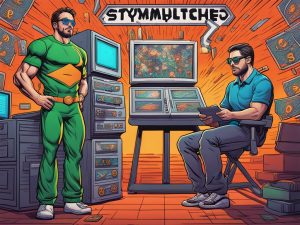Lybra Finance Launches V2 Testnet on Arbitrum’s Goerli Network
Users can now interact with Lybra’s new companion stablecoin, peUSD, which is designed to be more compatible with decentralized finance (DeFi) protocols compared to the protocol’s main stablecoin, eUSD. The v2 upgrade allows users to generate eUSD by using RocketPool, Binance, and Swell’s liquid staking tokens as collateral. Additionally, users can convert eUSD to peUSD, which is aimed at high-frequency traders in the DeFi space.
Key Points:
– Lybra Finance has launched its v2 testnet on Arbitrum’s Goerli network.
– The upgrade introduces a companion stablecoin called peUSD, which is more DeFi-compatible than eUSD.
– Users can use RocketPool, Binance, and Swell’s liquid staking tokens as collateral to generate eUSD.
– The introduction of peUSD aims to attract high-frequency traders in the DeFi space.
– Lybra’s eUSD market capitalization has surged by 152% in the past 30 days to $198 million.
With the testnet rollout, Lybra Finance’s eUSD market capitalization has seen significant growth, reaching $198 million in the past 30 days. Additionally, Lybra’s total value locked is nearing $400 million, marking a 108% increase in July. The project’s governance token, LBR, has also experienced a 4.6% increase in the past 24 hours, reaching $1.97.
Hot Take
Lybra Finance’s launch of the v2 testnet on Arbitrum’s Goerli network, along with the introduction of the peUSD stablecoin, showcases the project’s commitment to catering to the needs of high-frequency traders in the DeFi space. By providing a more compatible stablecoin and expanding the list of collateral options, Lybra aims to attract a wider range of users and further grow its market capitalization and total value locked. The positive price movement of the LBR governance token further reflects growing investor confidence in the project.


 By
By
 By
By
 By
By

 By
By
 By
By